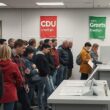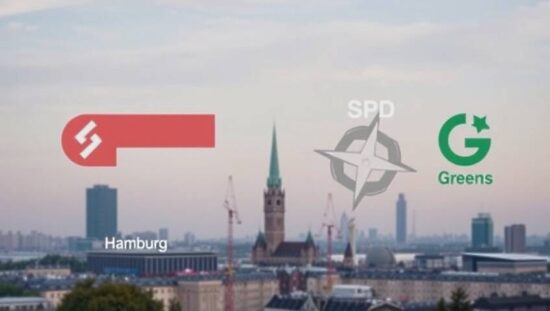A recent survey by the ARD has found that the Left Party in Hamburg is gaining ground ahead of the March 2 municipal election. If the election were held today, the Left Party would win 10 percent of the vote, putting it on a par with the AfD. The Greens would come in second with 18 percent, while the SPD would remain the strongest force with 32 percent. The CDU would drop to 17 percent and the FDP, Bündnis Sahra Wagenknecht and Volt would all fall below the 3 percent threshold.
The survey, conducted from Monday to Wednesday of this week, questioned 1,308 eligible voters in Hamburg. The ARD emphasized that the results are not a prediction of the election outcome, but rather a snapshot of the current political mood. Many voters are still undecided and the final phase of the campaign will play a crucial role in shaping the outcome.
The survey also found that 37 percent of respondents in Hamburg believe that federal politics are more important in the upcoming election, while 59 percent think that state politics are more important. The current red-green senate in Hamburg is viewed positively by a majority of the population, with 59 percent of respondents expressing satisfaction or very satisfaction with its work.
A slight majority of respondents, 42 percent, would like to see the SPD continue to lead the senate, while 17 percent would prefer a CDU-led senate and 13 percent a Green-led senate. The AfD, the Left Party, the FDP and the BSW all garnered smaller support, with the majority of respondents unable or unwilling to make a choice.
If the election were held according to the current poll, the SPD, with the support of the Greens or the CDU, would have a majority in the new senate. A slight majority of respondents, 52 percent, would like to see the SPD and Greens form a government again, while 40 percent would prefer a coalition of the SPD and CDU.
In a hypothetical direct election for the First Mayor of Hamburg, the SPD’s Peter Tschentscher would come out on top, with 49 percent of respondents supporting him. The Greens’ Katharina Fegebank and the CDU’s Dennis Thering would come in second and third, respectively, with 16 and 19 percent of the vote.





